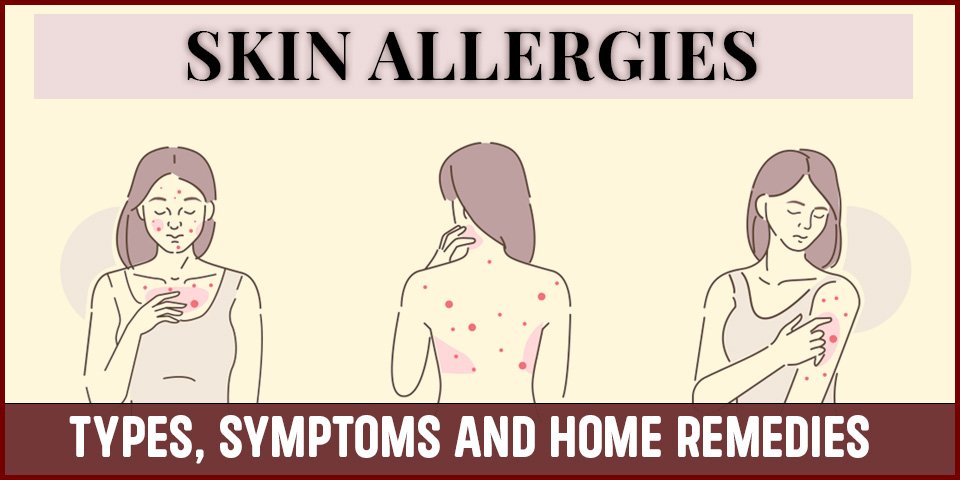Skin Allergy Treatment
Skin Allergy Treatment

Discover the early signs of skin allergies, such as redness, bumps, itchiness, dryness, or scaly skin. These allergies can worsen conditions like eczema or psoriasis over time. For the best skin allergy treatment in Bhopal, consult Dr. Shikha Shivhare, Bhopal’s leading dermatologist. Trust Dr. Shivhare for effective skin allergy treatment in Bhopal.
What is a Skin Allergy?
Skin allergies occur when the body’s immune system mistakenly reacts to harmless substances, known as allergens, triggering symptoms such as rash, bumps, itching, or redness on the skin. Allergens can include pollen, food, medications, plants, and more, with over 3700 known types of skin allergies. Identifying the cause may require allergy testing, as exposure to allergens can occur through ingestion, inhalation, or direct contact. For comprehensive skin allergy treatment, consult Dr. Shikha Shivhare, Bhopal’s leading dermatologist.
Types of Skin Allergies
There are many types of skin allergies. Some of the most common skin allergies are:
Urticaria or Hives
Urticaria, commonly known as hives, is a skin allergy triggered by the antigen Immunoglobulin E, leading to a Type I hypersensitivity reaction. This allergy can be induced by various internal factors such as bacterial infections, infestations, and systemic diseases, as well as external triggers including inhalants, certain foods like poultry and meat, injuries, and specific medications.

Symptoms of Hives:
- Swelling on the skin and lips
- Itching
- Tightness in the chest
- Abdominal discomfort
Some individuals may also experience symptoms like runny nose, difficulty breathing, and wheezing.
Diagnosis of Hives
To diagnose hives, a dermatologist will typically inquire about the individual’s medical history, symptoms, and duration of the condition. They may also suggest routine tests and skin allergy tests to identify the specific type of skin allergy and determine the appropriate treatment.
Atopic Dermatitis or Eczema
Atopic dermatitis, commonly known as eczema, is a skin condition often inherited genetically. Individuals with eczema experience skin inflammation that can be triggered by mild environmental factors, leading to intense itching. This condition frequently manifests in children and may coexist with other atopic conditions like hay fever, allergic rhinitis, and asthma. Eczema can be caused by various factors including environmental triggers, genetic predisposition, exposure to chemicals, and stress. Common irritants contributing to eczema and itching include animal fur, soaps, dust, cigarette smoke, and other environmental irritants.
Symptoms of Eczema:
- Dry, itchy skin
- Redness of the skin
- Skin pigmentation changes in children
- Eczematous lesions
Diagnosis of Eczema
Contact Dermatitis
Contact dermatitis occurs when the skin comes into contact with an irritant, leading to inflammation. Considered an occupational disease in various regions globally, individuals at high risk include those employed in industries such as chemicals, paints, and plastics. This type of skin allergy is classified as a Type 4 hypersensitivity reaction. Contact dermatitis can result from exposure to various triggers including pollen, specific chemicals, sunlight, topical antibacterial ointments, fabrics, or other irritants. Dr. Shikha Shivhare, Bhopal’s Leading Dermatologists, provide effective treatment for this.
Symptoms of Contact Dermatitis:
- Inflammation on the hands and back of the palms
- Itching
- Skin lesions
- Rashes
Diagnosis of Contact Dermatitis
What are the Causes of Skin Allergies?
Allergens
These are substances that trigger an allergic reaction when they come into contact with the skin. Common allergens include pollen, pet dander, dust mites, certain foods, latex, and certain metals (such as nickel).
Chemicals
Exposure to certain chemicals in skincare products, cosmetics, household cleaners, or environmental pollutants can irritate the skin and cause allergic reactions.
Medications
Some medications can cause allergic reactions when applied to the skin or taken orally. This includes antibiotics, topical corticosteroids, and nonsteroidal anti-inflammatory drugs (NSAIDs).
Plants
Contact with certain plants, such as poison ivy, poison oak, or poison sumac, can cause allergic skin reactions in susceptible individuals.
Insect bites or stings
Allergic reactions to insect bites or stings from bees, wasps, mosquitoes, or other insects can cause localized swelling, itching, and redness on the skin.
Treatment of Skin Allergy
Many skin allergies resolve spontaneously when triggers are avoided. If symptoms persist, it’s advisable to consult a doctor, who may recommend a skin allergy test to identify the cause. Common remedies for skin allergies include:
Opt for loose clothing.
Apply cool compresses to the affected area.
Use prescribed topical medications.
- Consider a milk bath
Frequently Asked Questions
Common triggers include allergens like pollen, pet dander, certain foods, chemicals in skincare products, medications, insect bites, and environmental pollutants.
Your doctor may recommend allergy testing, such as skin prick tests or patch tests, to identify specific allergens causing your skin reactions.
Symptoms may include redness, itching, swelling, rash, hives, blisters, dryness, or scaling of the skin, depending on the type of allergy and severity of the reaction.
Home remedies may include avoiding triggers, wearing loose clothing, applying cool compresses, using gentle skincare products, and taking antihistamines or topical corticosteroids as directed by your doctor.
You should see a doctor if your symptoms are severe, persistent, or worsening despite home remedies, or if you experience difficulty breathing, swelling of the face or throat, or signs of infection.
